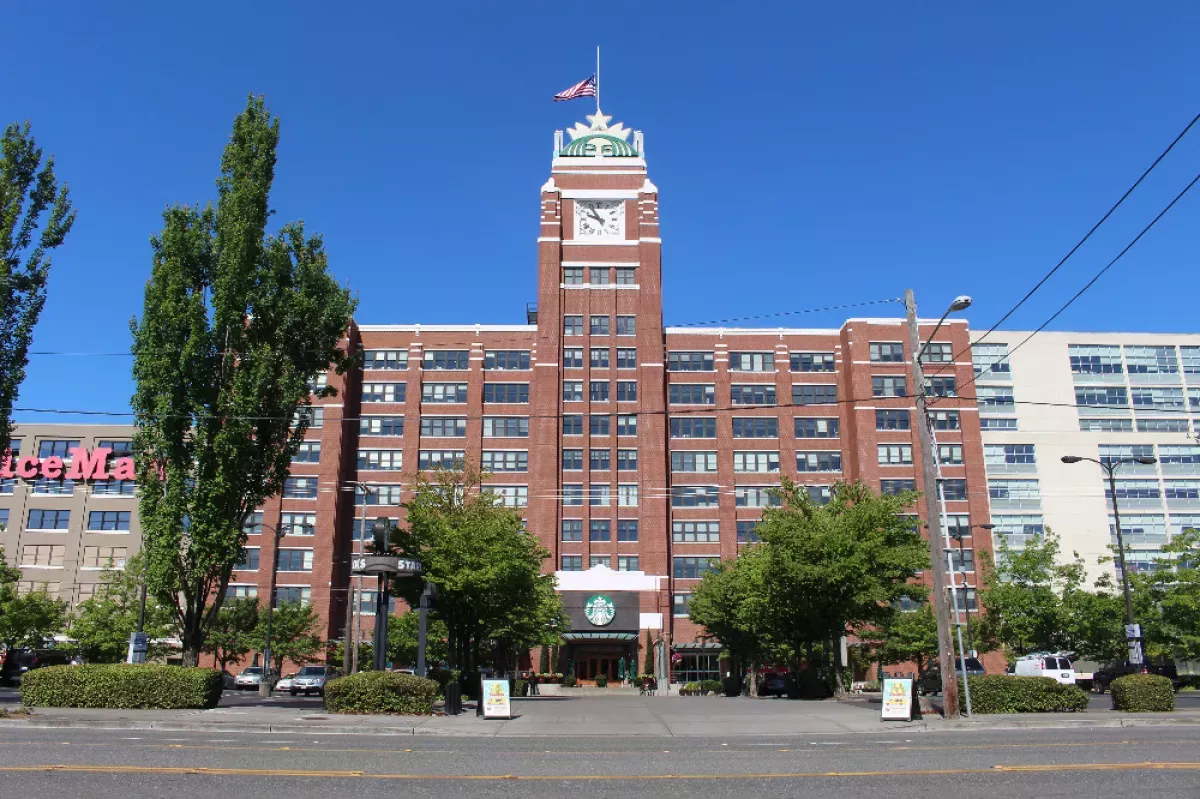Starbucks is an American multinational coffeehouse chain established in Seattle, Washington, in 1971. Originally a coffee bean wholesaler founded by Jerry Baldwin, Zev Siegl, and Gordon Bowker, it transitioned into a coffee shop under Howard Schultz's leadership. Schultz spearheaded the expansion of Starbucks across the West Coast and beyond. Today, Starbucks is a global brand known for its coffee drinks and coffeehouse experience.
March 30, 1971: Starbucks Opens First Store
On March 30, 1971, Starbucks officially opened its first store in Seattle, Washington. Initially, the store focused on selling high-quality coffee beans and related equipment, establishing itself as a local coffee bean retailer.
1971: First Starbucks Store Location
From 1971 to 1976, the first Starbucks store was located at 2000 Western Avenue in Seattle, where it exclusively sold coffee beans and not drinks.
1971: Starbucks Founded
In 1971, Starbucks was founded by Jerry Baldwin, Zev Siegl, and Gordon Bowker at Seattle's Pike Place Market as a coffee bean wholesaler.
1973: Alfred Peet Helps Train New Roastmaster
In 1973, Alfred Peet stopped supplying Starbucks with green coffee beans and helped train their new Roastmaster, Jim Reynolds.
1976: Starbucks moves location
In 1976, the Starbucks store moved from its original location to 1912 Pike Place, continuing to sell only coffee beans.
1984: Starbucks Buys Peet's Coffee
In 1984, the original owners of Starbucks, led by Jerry Baldwin, acquired Peet's Coffee.
1986: Starbucks Sells Espresso Coffee
By 1986, Starbucks was operating six stores in Seattle and had begun selling espresso coffee.
1986: Howard Schultz becomes CEO
Howard Schultz was the CEO of Starbucks from 1986 to 2000.
1987: Revenue in 1987
In 1987, Starbucks had revenues of US$1.3 million.
1987: Second version of the Starbucks logo was used
In 1987, the second version of the Starbucks logo was introduced, featuring the siren's breasts covered by her flowing hair and her navel still visible. The fish tail was cropped slightly, and the primary color was changed from brown to green.
1989: Starbucks Expansion in 1989
By 1989, Starbucks had expanded to 46 stores across the Pacific Northwest and Midwest and was roasting over 2,000,000 pounds of coffee annually.
1990: Hear Music's Origins
In 1990, Hear Music began as a music catalog company, later adding retail locations in the San Francisco Bay Area.
1990: George Howell's Critique of Dark Roast Beans
In 1990, coffee veteran George Howell criticized the dark roasted beans sold by Starbucks, finding the dark roast did not deepen the flavor of coffee, but instead can destroy purported nuances of flavor.
June 1992: Starbucks Initial Public Offering
In June 1992, Starbucks launched its initial public offering (ticker symbol: SBUX) with 140 outlets and US$73.5 million in revenue, up from US$1.3 million in 1987. The company's market value was US$271 million.
1992: Third version of the Starbucks logo was used
In 1992, the third version of the Starbucks logo was launched and used until 2011. In this version, the siren's navel and breasts were not visible at all, and only vestiges remained of the fish tails.
1994: Starbucks Acquires The Coffee Connection
In 1994, Starbucks acquired The Coffee Connection, securing the rights to the "Frappuccino" beverage.
1994: Starbucks began drafting plans for corporate social responsibility
In 1994, Starbucks began drafting plans for corporate social responsibility and partnered with Conservation International (CI) to draft plans and audit its coffee and farmer equity (C.A.F.E.) program.
1994: Lawsuit Settlement for Racial Bias and Discrimination
In 1994, Starbucks settled a lawsuit after two employees were dismissed because of their race, age, and sex.
1995: Frappuccino introduced
In 1995, the "Frappuccino" beverage was introduced under the Starbucks brand.
1998: Partnership with Kraft Foods
In 1998, Starbucks and Kraft Foods partnered to sell Starbucks products in Mondelez grocery stores owned by Kraft.
1999: Starbucks Acquires Pasqua Coffee
In 1999, Starbucks acquired Pasqua Coffee, a San Francisco-based retail coffee chain with nearly 60 locations in San Francisco, Los Angeles, and New York City.
1999: Restaurant Experimentation
In 1999, Starbucks began experimenting by opening eateries in the San Francisco Bay Area under the "Circadia" restaurant brand, and converted its Seattle Circadia restaurant into a Café Starbucks.
1999: "Grounds for your Garden" program started
In 1999, Starbucks initiated the "Grounds for your Garden" program, which allows customers to request leftover coffee grounds for composting in an attempt to make the company more environmentally responsible.
1999: Austin Powers Reference
In the 1999 film Austin Powers: The Spy Who Shagged Me, Number 2 states that Virtucon invested in Starbucks years prior to becoming a major conglomerate.
1999: Starbucks Enters the Tea Business
Starbucks entered the tea business in 1999 when it acquired the Tazo brand for US$8,100,000.
July 2000: First Australian Location Opens in Sydney
In July 2000, the first Starbucks location in Australia opened in Sydney.
2000: Orin Smith succeeds Howard Schultz as CEO
Howard Schultz was the CEO of Starbucks from 1986 to 2000. He was succeeded by Orin Smith.
2000: Howard Schultz Steps Down as CEO
In 2000, Howard Schultz stepped down as CEO of Starbucks, marking the end of his initial tenure leading the company.
2000: Starbucks introduced a line of fair trade products
In 2000, Starbucks introduced a line of fair trade products.
2000: Logo altered for Saudi Arabian market
In 2000, the Starbucks logo was altered for the Saudi Arabian market to remove the siren, leaving only her crown.
September 2002: First Latin American Store Opens in Mexico City
In September 2002, Starbucks opened its first store in Latin America, located in Mexico City.
2002: Starbucks Opera Album Produced
In 2002, Hear Music, under Starbucks' ownership, produced a Starbucks opera album, featuring artists such as Luciano Pavarotti.
2002: Starbucks to use international logo in Saudi Arabia
In 2002, Starbucks announced that it would be using the international logo in Saudi Arabia.
June 2003: Starbucks Japan Expansion
By June 2003, Starbucks Japan had 466 stores and planned to add 70 to 75 more in the 2003 financial year, with plans to install ovens in all stores to improve food offerings.
August 2003: First South American Store Opens in Lima, Peru
In August 2003, Starbucks opened its first store in South America, located in Lima, Peru.
2005: Howard Behar President of Starbucks North America
In 2005, Howard Behar began serving as the president of Starbucks North America, a position he held until 2007.
2005: Starbucks received the National Recycling Coalition Recycling Works Award
In 2005, Starbucks received the National Recycling Coalition Recycling Works Award for using 10% recycled paper in its beverage cups.
2005: Starbucks cocoa foundation targets set to reduce child labor
In 2005, targets were set to reduce child labour that the Foundation has backed.
2005: Jim Donald becomes CEO
Jim Donald was CEO from 2005 to 2008, orchestrating a large-scale earnings expansion.
September 2006: Diedrich Coffee Sells Stores to Starbucks
In September 2006, Diedrich Coffee announced that it would sell most of its company-owned retail stores to Starbucks, including most locations of Oregon-based Coffee People.
September 2006: Starbucks temporarily reintroduced its original logo
In September 2006, Starbucks temporarily reintroduced its original brown logo on paper hot-drink cups to showcase the company's heritage and celebrate 35 years of business.
October 2006: Starbucks Entertainment Area on iTunes Store
In October 2006, Apple added a Starbucks Entertainment area to the iTunes Store, selling music similar to that played in Starbucks stores, as part of a partnership to collaborate on selling music as part of the "coffeehouse experience".
2006: Starbucks began using 10% recycled paper in its beverage cups
In 2006, Starbucks began using 10% recycled paper in its beverage cups and claimed that the initiative was the first time that recycled material had been used in a product that came into direct contact with a food or beverage.
2006: Creation of Starbucks Entertainment
In 2006, Starbucks created Starbucks Entertainment, a producer of the 2006 film Akeelah and the Bee. Starbucks stores advertised the film before its release and sold the DVD.
2006: Logo described as a twin-tailed mermaid
In 2006, Valerie O'Neil, a Starbucks spokeswoman, described the Starbucks logo as an image of a "twin-tailed mermaid, or siren as she's known in Greek mythology".
2006: 6% of Starbucks' coffee was certified as fair trade
In 2006, about 18 million pounds or 6% of the approximately 300 million pounds of coffee Starbucks purchased was certified as fair trade.
2006: Starbucks supports and promotes Ethiopian coffees
In 2006, after a long-running dispute between Starbucks and Ethiopia, Starbucks agreed to support and promote Ethiopian coffees and said it paid $1.42 per pound for its coffee.
March 2007: Memory Almost Full Release
In March 2007, Hear Music released Memory Almost Full, a hit CD by Paul McCartney, making McCartney the first artist signed to the new Hear Music label sold in Starbucks outlets.
March 2007: Consumer Reports Coffee Ranking
In the March 2007 issue, Consumer Reports compared American fast-food chain coffees and ranked Starbucks behind McDonald's Premium Roast. The magazine described Starbucks coffee as "strong, but burnt and bitter enough to make your eyes water instead of open".
September 2007: iTunes Store Browsing via Starbucks Wi-Fi
In September 2007, Apple announced that customers could browse the iTunes Store at Starbucks via Wi-Fi in the US without logging in, targeted at iPhone, iPod Touch, iPad, and MacBook users. The iTunes Store would automatically detect recent songs playing and offer downloads.
2007: EEOC Allegations of Racial Bias
Based on workforce data from 2007 to 2011, the Equal Employment Opportunity Commission raised allegations against Starbucks for racial bias in its promotions, alleging that minority retail partners in the United States received fewer promotions than statistically expected.
2007: Howard Behar Steps Down
In 2007, Howard Behar ended his tenure as president of Starbucks North America.
February 2008: Starbucks started to terminate employees
From February 2008 to January 2009, Starbucks terminated an estimated 18,400 U.S. jobs and began closing 977 stores worldwide.
March 2008: Acquisition of Coffee Equipment Company
In March 2008, Starbucks acquired Coffee Equipment Company, the manufacturer of the Clover Brewing System, and began testing the "fresh-pressed" coffee system at select locations.
July 2008: Starbucks to close stores in Australia
In July 2008, Starbucks announced it would close 61 of its 84 stores in Australia the following month, due to failing to truly understand Australia's café culture.
July 2008: Store Closures and Expansion Cuts
In July 2008, during the Great Recession, Starbucks announced it was closing 600 underperforming company-owned stores and cutting U.S. expansion plans.
July 29, 2008: Starbucks Cuts Non-Retail Jobs
On July 29, 2008, Starbucks cut almost 1,000 non-retail jobs as part of its bid to re-energize the brand and boost its profit.
October 2008: Starbucks water consumption reported
In October 2008, The Guardian reported that Starbucks was wasting 6.2 million U.S. gallons of water a day by leaving a tap constantly running for rinsing utensils in a 'dipper well' in each of its stores.
2008: Massive Downturn in Australia
After a massive downturn in 2008, the remaining Australian Starbucks stores were sold to the Withers family.
2008: Mass-closure of Starbucks stores in Australia
Before the mass-closure of 61 of their 85 stores in 2008, there were also stores in Adelaide, Canberra, Hobart and Wollongong.
2008: Howard Schultz served as Chairman
Both Johnson and Ullman succeeded Howard Schultz, who served in both capacities from 2008 to 2017.
2008: Starbucks announced new animal welfare policy
In 2008, Starbucks announced a comprehensive new animal welfare policy banning many inhumane farming practices, including the caging of hens.
2008: Starbucks Expands to Argentina and Brazil
In 2008, Starbucks expanded its operations and opened stores in both Argentina and Brazil.
2008: Limited Rollout of iTunes Integration
In 2008, Starbucks rolled out features integrating iTunes with its stores in a limited number of markets, including Seattle, New York City, and the San Francisco Bay Area. During the fall of 2007, Starbucks also began to sell digital downloads of certain albums through iTunes. Starbucks gave away 37 different songs for free download through iTunes as part of the "Song of the Day" promotion in 2007, and a free "Pick of the Week" download is available from the App Store.
2008: Starbucks's vice president of corporate social responsibility acknowledged the company continued to struggle with environmental responsibility
In 2008, Starbucks's vice president of corporate social responsibility acknowledged that the company continued to struggle with environmental responsibility, as none of its cups were recyclable and stores did not have recycling bins.
2008: Discrimination Lawsuit by African American Engineer
In 2008, a former African American Starbucks engineer sued the company for discrimination after his supervisor failed to address racist bullying he was experiencing at the workplace. Starbucks settled the suit in 2009.
2008: Starbucks cocoa foundation targets set to reduce child labor
In 2008, targets were set to reduce child labour that the Foundation has backed.
2008: Launch of My Starbucks Idea Website
In early 2008, Starbucks launched a community website called My Starbucks Idea, designed to gather suggestions and feedback from customers.
2008: Starbucks reintroduced original logo
In early 2008, Starbucks temporarily reintroduced its original brown logo on paper hot-drink cups to showcase the company's heritage and celebrate 35 years of business.
2008: Schultz returns as CEO during financial crisis
Schultz returned as CEO during the 2008 financial crisis and spent the succeeding decade growing the company's market share, expanding its offerings, and reorienting the brand around corporate social responsibility.
January 2009: Store Closures and Job Elimination
In January 2009, Starbucks announced the closure of an additional 300 underperforming stores and the elimination of 7,000 positions.
June 1, 2009: MSNBC's Morning Joe "Brewed by Starbucks"
Starting on June 1, 2009, the MSNBC morning news program Morning Joe was presented as "brewed by Starbucks", changing the show's logo to include the company logo. The endorsement deal ended in August 2013.
June 2009: Starbucks re-evaluated water consumption
In June 2009, Starbucks re-evaluated its use of the dipper well system in response to concerns over its excessive water consumption.
July 2009: Opening of 15th Avenue Coffee and Tea
The first unbranded store, 15th Avenue Coffee and Tea, opened in July 2009 on Capitol Hill. It served wine and beer and hosted live music and poetry readings.
August 2009: Ahold to close and rebrand Starbucks kiosks
In August 2009, Ahold announced closures and rebranding for 43 of its licensed store Starbucks kiosks for their US-based Stop & Shop and Giant supermarkets.
September 2009: New water-saving solution implemented
In September 2009, company-operated Starbucks stores in Canada and the United States implemented a new water saving solution, replacing dipper wells with push button metered faucets, which will reportedly save up to 150 U.S. gallons of water per day in every store.
2009: Starbucks established a buying preference
In 2009, Starbucks established a buying preference in North America to use industry best practices for animal husbandry and processing, including egg production.
2009: Settlement of Discrimination Lawsuit
In 2009, Starbucks settled a discrimination lawsuit filed in 2008 by a former African American engineer who alleged his supervisor failed to address racist bullying at the workplace.
May 2010: Agreement with Southern Sun Hotels South Africa
In May 2010, Southern Sun Hotels South Africa signed an agreement with Starbucks to brew Starbucks coffees in select Southern Sun and Tsonga Sun hotels in South Africa.
November 2010: First Central American Store Opens in El Salvador
In November 2010, Starbucks opened its first store in Central America, located in San Salvador, the capital of El Salvador.
December 2010: First Starbucks at Sea Debuts
In December 2010, Starbucks debuted their first-ever Starbucks at sea, partnering with Royal Caribbean International aboard the Allure of the Seas.
2010: Kevin Knox Recollection
In 2010, Kevin Knox, who managed doughnut food quality at Starbucks from 1987 to 1993, recalled George Howell's criticism of Starbucks' dark roasted beans in 1990.
2010: Roasting Methods Change and Barista Retraining
In 2010, Starbucks retrained its baristas and changed its roasting methods in order to "standardize quality over quantity" after criticism from third wave coffee proponents for over-roasting beans.
2010: Starbucks cocoa foundation targets set to reduce child labor
In 2010, targets were set to reduce child labour that the Foundation has backed.
2010: Starbucks started donating leftover pastries
Since 2010, Starbucks has been donating leftover pastries in the United States to local food banks through a food collection service named Food Donation Connection.
January 2011: Starbucks announced small changes to its logo
In January 2011, Starbucks announced that it would make small changes to the company's logo, removing the Starbucks wordmark around the siren, enlarging the siren image, and making it green.
2011: EEOC Allegations of Racial Bias
Based on workforce data from 2007 to 2011, the Equal Employment Opportunity Commission raised allegations against Starbucks for racial bias in its promotions, alleging that minority retail partners in the United States received fewer promotions than statistically expected.
2011: End of the third version of the Starbucks logo
In 2011, the third version of the Starbucks logo, which had been in use since 1992, was discontinued.
June 2012: Starbucks Opens Store in San Jose, Costa Rica
In June 2012, Starbucks opened a store in San Jose, Costa Rica.
August 2012: Largest Starbucks Opens in US
In August 2012, the largest Starbucks in the U.S. opened at the University of Alabama's Ferguson Centre.
October 2012: Plans Announced to Open 1,000 Stores in the United States
In October 2012, Starbucks announced plans to open 1,000 new stores in the United States over the next five years.
December 2012: Starbucks Acquires Teavana
In December 2012, Starbucks acquired Teavana for US$620 million, expanding its presence in the tea market.
2012: Frappuccino Sales Exceed US$2 Billion
In 2012, Starbucks recorded annual "Frappuccino" sales of over US$2 billion.
2012: Accusations of Stalled Animal Welfare Improvements
In 2012, organizations like World Animal Protection and Compassion in World Farming stated that Starbucks had not shown demonstrable improvement in animal welfare since 2012. The Humane Society of the United States also suggested Starbucks no longer qualified as having an actual cage-free commitment.
April 2013: Starbucks introduced reusable cups
In April 2013, Starbucks introduced reusable cups where customers would be able to bring their cup into any location and receive a small discount on their drink.
June 25, 2013: Calorie Counts on Menus
On June 25, 2013, Starbucks began posting calorie counts on menus for drinks and pastries in all of its U.S. stores.
July 2013: Mobile Purchases
In July 2013, over 10% of in-store purchases were made on customers' mobile devices using the Starbucks app.
August 2013: First store in Colombia announced
In August 2013, Starbucks announced its first store in Colombia at a press conference in Bogotá.
August 2013: Howard Schultz announces opening of Starbucks stores in Colombia
In August 2013, Starbucks's CEO Howard Schultz personally announced the opening of Starbucks stores in Colombia.
August 2013: End of Morning Joe Endorsement Deal
In August 2013, the endorsement deal between Starbucks and MSNBC's Morning Joe ended, which had presented the show as "brewed by Starbucks" since June 1, 2009.
October 2013: Tweet-a-Coffee Promotion
In October 2013, Starbucks launched the "Tweet-a-Coffee" promotion, allowing customers to purchase a US$5 gift card for a friend via Twitter.
November 2013: Arbitration Ruling Against Starbucks
In mid-November 2013, an arbitrator ordered Starbucks to pay US$2.8 billion to Mondelez International, a corporate spin-off of Kraft, for its premature unilateral termination of an agreement, following Starbucks' claims that Kraft did not sufficiently promote its products.
December 2013: Tweet-a-Coffee Campaign Results
By December 2013, the "Tweet-a-Coffee" promotion had seen participation from 27,000 people, resulting in US$180,000 of purchases.
2013: Starbucks sells only one Ethiopian coffee
As of 2013, the Starbucks website sells only one Ethiopian coffee.
January 2014: Shift to Locally Relevant Design
In January 2014, Starbucks transitioned from a singular brand worldwide to focusing on locally relevant design for each store.
May 2014: Australian Market Losses and Sale
In May 2014, Starbucks announced ongoing losses in the Australian market, leading to the sale of all remaining stores to the Withers Group.
May 2014: Mobile ordering system launched in South Korea
In May 2014, Starbucks operations in South Korea introduced Siren Order, a mobile ordering system accessible via a local version of the Starbucks smartphone application.
June 2014: Partnership with Arizona State University
In June 2014, Starbucks announced a partnership with Arizona State University (ASU) to allow Starbucks employees in their Junior and Senior years to complete a four-year college degree at ASU's online program for approximately US$23,000.
December 2014: Mobile Order & Pay Launched in Portland, Oregon
In December 2014, Starbucks launched Mobile Order & Pay, a similar mobile ordering system to Siren Order, in Portland, Oregon.
2014: Sale of Australian Starbucks stores
After a massive downturn in 2008, the remaining Australian Starbucks stores were sold to the Withers family in 2014, with the company planning a more restrained expansion.
2014: First café set to open in Bogotá
In 2014 the first café was set to open in Bogotá and add 50 more stores throughout Colombia's main cities in a 5-year limit.
2014: Milwaukee Starbucks Incident
In 2014, at a Milwaukee Starbucks, an employee called the police on a black man sleeping in a park. The police officer fatally shot the man 14 times, sparking protests due to the racial implications of the event in 2014.
January 2015: Teavana Teas Rolled Out in Starbucks Stores
In January 2015, Starbucks began rolling out Teavana teas into Starbucks stores, both in to-go beverage and retail formats.
April 2015: Expansion of College Achievement Program
In April 2015, Starbucks and ASU announced an expansion of the College Achievement Program, allowing all eligible part-time and full-time U.S. employees to enroll in the program for full-tuition reimbursement, reimbursing the student after each semester.
May 2015: Partnership with Spotify
In May 2015, Starbucks partnered with music streaming service Spotify, providing U.S.-based employees with a Spotify premium subscription and allowing them to influence in-store music via Spotify playlists. Starbucks also had its own curated Spotify playlist on the Spotify mobile app.
June 19, 2015: Starbucks Opens at Disney's Animal Kingdom
On June 19, 2015, a Starbucks opened at Disney's Animal Kingdom on Discovery Island, featuring green eco-friendly straws for cold drinks due to the park's ban on plastic straws.
August 2015: Starbucks Announces Plans to Open in Phnom Penh, Cambodia
In August 2015, Starbucks announced plans to open a store in Phnom Penh, Cambodia, marking its 16th market in the China/Asia Pacific region by the end of 2015.
October 2015: Starbucks Hires First Chief Technology Officer
In October 2015, Starbucks hired its first chief technology officer, Gerri Martin-Flickinger, to lead its technology team.
December 18, 2015: Starbucks Opens in Almaty, Kazakhstan
On December 18, 2015, Starbucks opened its first store in Almaty, Kazakhstan.
2015: Starbucks announced switch to 100% cage-free eggs
In 2015, Starbucks announced that they will switch to 100% cage-free eggs by 2020.
2015: Deal with PepsiCo
In 2015, Starbucks signed a deal with PepsiCo to market and distribute Starbucks products in several Latin American countries.
2015: "Race Together" Campaign Criticized
In 2015, the Starbucks "Race Together" campaign, instructing baristas to write "Race Together" on cups to initiate a national dialogue about race, received heavy criticism and backlash.
2015: Kevin Johnson becomes president and chief operating officer
Kevin Johnson was president and chief operating officer from 2015 to 2018
January 2016: Starbucks announces launch in Trinidad and Tobago
In January 2016, Starbucks announced that it would launch operation in Trinidad and Tobago.
March 2016: Starbucks unveiled a five-year plan to donate 100 percent of unsold food
In March 2016, Starbucks unveiled a five-year plan to donate 100 percent of unsold food from its 7,600 company-operated stores in the U.S. to local food banks and pantries.
April 2016: Starbucks Opens First Stores in South Africa
In April 2016, after TASTE Holdings acquired outlet licensing, Starbucks opened its first stores in South Africa in Rosebank, Gauteng, Johannesburg and the Mall of Africa.
August 29, 2016: First Store Opens in Trinidad and Tobago
On August 29, 2016, Starbucks opened its first store in Trinidad and Tobago at South Park Mall in San Fernando.
September 2016: Debut of "Upstanders" Content Series
In September 2016, Starbucks announced the debut of its first-ever original content series called "Upstanders", featuring podcasts, written word, and video distributed via the Starbucks mobile app, online, and in-store digital network.
July 2017: Acquisition of Remaining Stake in Chinese Venture
In July 2017, Starbucks acquired the remaining 50% stake in its Chinese venture from Uni-President Enterprises Corporation and President Chain Store Corporation for US$1.3 billion.
November 2017: Starbucks Commences Operations in Jamaica
In November 2017, Starbucks commenced operations in Jamaica, opening its first store in Montego Bay.
November 2017: Starbucks Sells Tazo to Unilever
In November 2017, Starbucks sold Tazo to Unilever for $384 million.
November 21, 2017: Starbucks Jamaica Opens First Store in Montego Bay
On November 21, 2017, Starbucks Jamaica opened its first store in Montego Bay, located on the shores of Doctor's Cave Beach Club.
2017: Starbucks FoodShare program was in 10 different markets
As of 2017, the Starbucks FoodShare program was in 10 different markets, including New York City.
2017: Kevin Johnson succeeds Schultz as CEO
Kevin Johnson, who was president and chief operating officer from 2015 to 2018, succeeded Schultz as CEO in 2017.
March 2018: Mobile Order & Pay expanded to all customers
In late March 2018, Starbucks opened the Mobile Order & Pay system, previously exclusive to Starbucks Rewards members, to all customers.
March 21, 2018: Exploration of Blockchain Technology
On March 21, 2018, Starbucks announced it was considering using blockchain technology to connect coffee drinkers with coffee farmers.
April 11, 2018: Starbucks Begins Operations in Uruguay
On April 11, 2018, Starbucks began operations in Uruguay, with its first location in the Montevideo Shopping mall.
April 12, 2018: Arrests at Philadelphia Starbucks
On April 12, 2018, two men were arrested at a Philadelphia Starbucks, leading to protests and an apology from CEO Kevin Johnson due to racial bias concerns.
June 2018: Myron E. Ullman Becomes Chairman
In June 2018, Myron E. Ullman became chairman of Starbucks.
June 19, 2018: Store Closures Announced
On June 19, 2018, Starbucks announced the closing of 150 locations in 2019, primarily in urban areas with dense store clusters.
June 21, 2018: First Kingston Store Opens
On June 21, 2018, Starbucks opened its first store in Kingston, Jamaica.
July 9, 2018: Starbucks announced ban of single-use plastic straws
On July 9, 2018, Starbucks President and CEO Kevin Johnson announced that Starbucks will ban the single-use plastic straws by January 1, 2020, on all cold drinks from all locations worldwide due to climate change concerns, pollution, and sea turtle endangerment.
2018: Commitment to Cage-Free Eggs
In 2018, Starbucks committed to using 100% cage-free eggs and egg products globally in company-operated stores by 2020, with a focus on high-quality and ethical standards, and animal welfare.
2018: Business Insider Coffee Quality Test
In 2018, a Business Insider test judged by 100 coffee experts found that Starbucks coffee quality had materially improved, with strong showings in iced coffee and nitro cold brew coffee, but noted that the quality in Starbucks Reserves far surpassed that of the typical retail store.
2018: Racial Bias Incidents and Training
In 2018, multiple racial bias incidents at Starbucks cafes led to widespread outrage. These included the arrest of two black men in Philadelphia for refusing to leave without ordering, and another incident where a black man was denied restroom access while a white man was given the code before ordering. As a result, Starbucks closed 8,000 cafes for a day in 2018 for racial bias training.
2018: Starbucks Shut Down Teavana
Starbucks shut down Teavana in early 2018.
July 2019: Starbucks to Stop Selling Newspapers
In July 2019, Starbucks announced that it would no longer be selling newspapers in its cafés.
August 2019: Franchised Location Opens in the Cayman Islands
In August 2019, a franchised Starbucks location opened in the Cayman Islands.
September 2019: 60% of Starbucks stores are participating in FoodShare
In September 2019, 60% of Starbucks stores are participating in FoodShare, contributing to 20 million meals served to those in need.
September 2019: Kiosks to be Removed
In September 2019, Starbucks announced kiosks for grab-and-go snacks and bags of whole-bean coffee would be removed from stores.
October 2019: Franchised Location Opens in the Turks and Caicos Islands
In October 2019, a franchised Starbucks location opened in the Turks and Caicos Islands.
2019: 150 locations closed
In 2019, Starbucks closed 150 locations, three times the number that the corporation typically closes in a single year.
2019: "Bean to Cup" program announcement
In 2019, Starbucks formally announced its "bean to cup" program using Microsoft's Azure-based blockchain service.
2019: Fair World Project outlined Starbucks Brazil production child slave labor
In 2019, the Fair World Project released an article outlining that despite Starbucks passing coffee producers as slave free in their Brazil production units, Brazilian labor inspectors had proof of child slave labor practices being present in their supply chain.
2019: Plans to open up to six stores in Kingston, Jamaica by 2019
Starbucks Jamaica announced plans to open up to six stores in Kingston, Jamaica, by 2019.
2019: Company halted the use of personal cups
When the COVID-19 pandemic first began in 2019, the company halted the use of personal cups due to concerns with the transferring of germs.
January 1, 2020: Starbucks will ban single-use plastic straws on all cold drinks
On January 1, 2020, Starbucks banned single-use plastic straws on all cold drinks from all locations worldwide.
January 2020: Starbucks shared its new environmental sustainability commitment
In January 2020, Starbucks shared its new environmental sustainability commitment to become a resource positive company. It announced three preliminary targets including reducing carbon emissions, waste output, and water impact by 50% by 2030.
March 2020: Mental Health Benefits for Employees
In March 2020, Starbucks announced that, starting April 6, all U.S. employees and their eligible family members could use up to 20 free mental health therapy or coaching sessions per year, with access to counselors and self-care apps through Lyra Health Inc.
March 20, 2020: Store Closures Due to COVID-19 Pandemic
On March 20, 2020, Starbucks temporarily closed all café-only stores in the United States due to the COVID-19 pandemic, with only drive-thru and delivery services remaining operational. Employees were to be paid for 30 days regardless of their work status.
May 2020: Request for Reduced Rent
In May 2020, Starbucks requested reduced rent from landlords due to the decrease in sales caused by the COVID-19 pandemic.
November 2020: Plans to Open in Laos Announced
In November 2020, Starbucks announced its plans to open an outlet in Laos.
2020: Starbucks altered its commitment to cage-free eggs
In 2020, Starbucks altered its commitment to just company-owned locations, excluding around 40% of its licensed restaurants to 100% cage-free eggs.
2020: Prohibition of Black Lives Matter Symbols
In 2020, Starbucks prohibited employees from wearing Black Lives Matter symbols or phrases on their clothing or accessories.
June 2021: Starbucks reintroduced personal reusable cups
In June 2021, Starbucks reintroduced personal reusable cups with a contactless new method to eliminate shared touch points between customers and baristas.
2021: Racist Drawing Incident in Ireland
In 2021, a Starbucks in Ireland was fined €12,000 after an Irish Thai customer received her order with a racist drawing on the cup.
2021: Ghostbusters: Afterlife Reference
In the 2021 film Ghostbusters: Afterlife, Ray Stantz states that Starbucks took over the Ghostbusters' firehouse headquarters after they went out of business, turning it into a coffeehouse before Winston Zeddemore bought it back.
March 2022: Schultz to return as CEO
In March 2022, Starbucks announced that Schultz would return as CEO in April 2022 in an interim role.
April 2022: Schultz returns as CEO
In March 2022, Starbucks announced that Schultz would return as CEO in April 2022 in an interim role.
November 2022: Starbucks Global Presence in 2022
As of November 2022, Starbucks had a significant global presence with 35,711 stores in 80 countries, including 15,873 stores in the United States.
November 2022: Number of Starbucks stores in Australia in November 2022
As of November 2022, there are 59 Starbucks stores in Australia; 23 in New South Wales, 19 in Queensland and 18 in Victoria.
November 2022: Closure of First Unionized Location
In November 2022, Starbucks announced the closure of its Seattle location, which was the first to unionize. The company cited safety concerns as the reason for the closure.
December 18, 2022: Three-Day Strike by Workers
On December 18, 2022, workers at over 100 Starbucks stores across the U.S. initiated a three-day strike. This action was in response to alleged union busting and to demand better working conditions.
2022: Response to Russian Invasion of Ukraine
Following the 2022 Russian invasion of Ukraine, Starbucks CEO Kevin Johnson stated that the company has no business operations in Ukraine, but does have 130 licensed Starbucks locations in Russia owned by a "licensed partner". Starbucks will donate any royalties received from business operations in Russia to humanitarian relief efforts for Ukraine.
2022: Starbucks stopped certifying their coffee beans as fairtrade
In 2022 Starbucks announced that they were going to stop certifying their coffee beans as fairtrade, in favor of their own in-house investigations.
2022: Termination of Unionizing Workers
In 2022, over a few months, Starbucks terminated over 85 workers in the U.S. who were involved in organizing worker unions. These workers accused Starbucks of creating a culture of fear and surveillance.
2022: Fair Trade overturned
fair trade later being overturned during Kevin Johnson's leadership in 2022
March 2023: Narasimhan Assumes CEO Position
In March 2023, Laxman Narasimhan assumed the position of CEO, earlier than initially planned.
April 2023: Laxman Narasimhan Appointed as CEO
In September 2022, Laxman Narasimhan was appointed to succeed him in April 2023, with Schultz remaining a member of the board of directors.
April 25, 2023: Starbucks Commences Operations in Guyana
On April 25, 2023, Starbucks commenced operations in Guyana.
June 2023: Pride Month Decoration Controversy
In June 2023, Starbucks faced controversy for allegedly preventing workers in some locations across 22 states from displaying Pride Month decorations. This occurred amidst public debate over LGBTQ+ rights in the US. This led to a strike in some stores.
2023: Boycotts and Lawsuit Over "Solidarity with Palestine" Post
In late 2023, Starbucks faced boycotts after suing the Starbucks Workers United (SWU) union for a social media post stating "Solidarity with Palestine" after the October 7 Hamas-led attack on Israel. Starbucks claimed the post harmed its reputation and sued for trademark infringement. The SWU responded, requesting continued use of the name/logo and alleging defamation. CEO Laxman Narasimhan addressed employees, stating, "We stand for humanity" in 2023.
April 29, 2024: Starbucks Announces Entry to Ecuador and Honduras
On April 29, 2024, Starbucks announced its official entry to Ecuador and Honduras, planned for mid-year and late 2024, respectively.
August 14, 2024: Starbucks Commences Operations in Ecuador
On August 14, 2024, Starbucks commenced operations in Ecuador, with its first location at Scala Shopping Mall in Quito.
August 2024: Brian Niccol replaces Laxman Narasimhan as CEO
In August 2024, Laxman Narasimhan was ousted and replaced with Brian Niccol, who became the chain's CEO on September 9 after leaving his position as Chipotle's CEO.
October 23, 2024: First store in Perth, Western Australia opened on October 23, 2024
The first store in Perth, Western Australia opened on October 23, 2024, with another 11 planned to open by the end of 2025.
2025: Court Order to Pay Burn Victim
In 2025, a court ordered Starbucks to pay $50 million to a driver who suffered burns after an unsecured hot drink spilled on him.
2025: Starbucks is phasing out disposable cups in Korea
Starbucks is phasing out disposable cups in Korea entirely by 2025.
2025: Starbucks plans to open four more cafes in Quito
The company announced plans to open four more cafes in the capital city until the end of 2025.
2025: Planned store opening in Perth
There are plans to open a restaurant in Toowoomba while the first store in Perth, Western Australia opened on October 23, 2024, with another 11 planned to open by the end of 2025.
2030: Starbucks aims to reduce its carbon emissions, waste output, and water impact by 50%
By 2030, Starbucks aims to reduce its carbon emissions, waste output, and water impact by 50%.
2030: Starbucks has publicly committed to reducing waste by 50%
Starbucks has publicly committed to reducing waste by 50% by 2030.
Mentioned in this timeline
Ukraine is a large country in Eastern Europe second in...
McDonald's is an American multinational fast food chain As of...
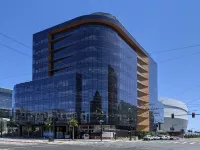
Uber Technologies Inc is a multinational transportation company headquartered in...
Saudi Arabia officially the Kingdom of Saudi Arabia KSA is...
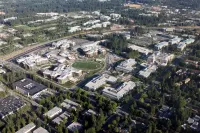
Microsoft an American multinational technology corporation headquartered in Redmond Washington...
Colombia officially the Republic of Colombia is a country located...
Trending
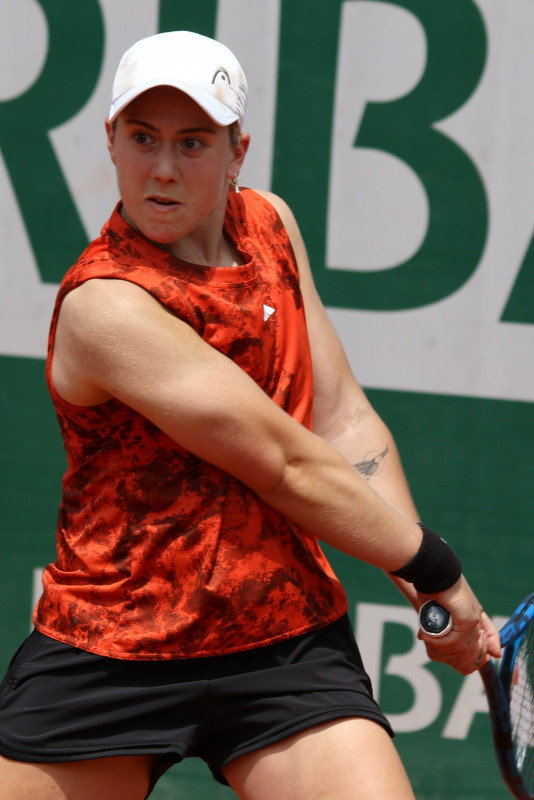
4 months ago Sonay Kartal Advances to Beijing Round 3, Defeating Kasatkina Again
3 months ago Poland accuses Russia of railway sabotage; investigation points towards Russian involvement.
3 months ago Newly Built Chinese Bridge Collapses Months After Opening, Raising Safety Concerns
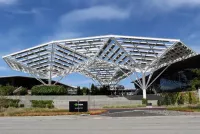
3 months ago Nvidia's Financial Results, Stock Reversal, and Wall Street Disagreement: A Summary

3 months ago Dolly de Leon eyes 'Heidi Fleiss' role, joining Aubrey Plaza in Hollywood.
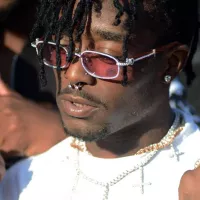
10 months ago Lil Uzi Vert Hospitalized in New York City After Falling Ill: Report
Popular

Kid Rock born Robert James Ritchie is an American musician...

Melania Trump a Slovenian-American former model has served as First...

XXXTentacion born Jahseh Dwayne Ricardo Onfroy was a controversial yet...

Thomas Douglas Homan is an American law enforcement officer who...
The Winter Olympic Games a major international multi-sport event held...

Instagram is a photo and video-sharing social networking service owned...
